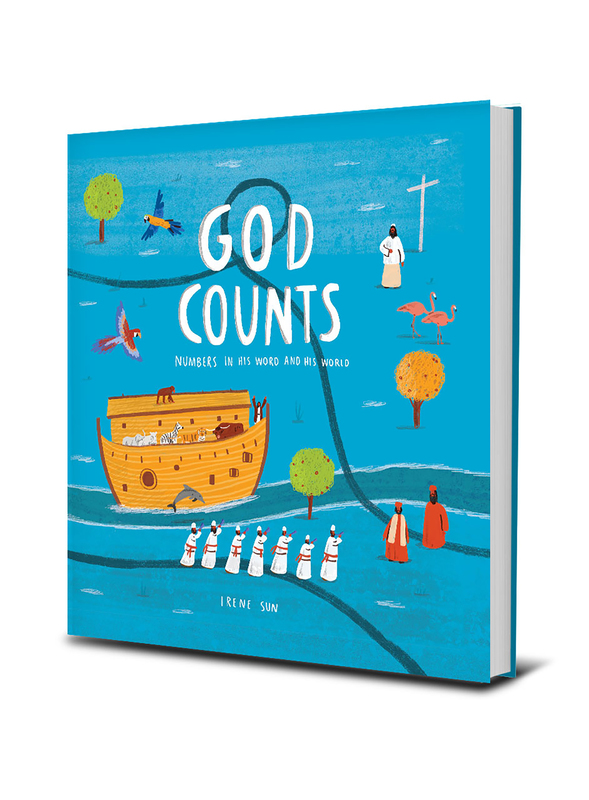Parents are their child’s first and most formative teachers. On the day we bring our newborns home from the hospital, our home becomes a school. The universe is our classroom.
More than imparting knowledge, education is the training of affections. One question sums up hundreds of my decisions every day: What am I teaching my children to love? Teaching them to love hygiene, vegetables, and speaking kind words occupy much of my time.
J. C. Ryle writes this in his book, The Duties of Parents: “You cannot make your children love the Bible, I allow. None but the Holy Spirit can give us a heart to delight in the Word. But you can make your children acquainted with the Bible; and be sure that they cannot be acquainted with that blessed book too soon, or too well.”
I agree, mostly. We cannot love what we do not know. We cannot love honey, if we have never tasted honey. So, we talk to our children about God’s Word “when you sit in your house, and when you walk by the way, and when you lie down, and when you rise” (Deuteronomy 6:7).
However, though we cannot make our children love the Bible, parents can teach the Bible in a manner that shows them the goodness of God’s Word. There are ways, for example, of teaching our children about honey that is unhelpful. Diluting a teaspoon of honey with a gallon of water or licking honey from an active beehive would not help them to delight in honey.
Here are some habits we try to cultivate in our home as we train our children to love God’s Word:
1. Love books.
Cultivate a love for reading in your home. Every book is a new place, new journeys into new worlds. My husband is our courageous captain. He navigates our ship through the shining seas of Bunyan, Carroll, Lewis, and Tolkien. His young sailors are hungry for definitions. They love making connections between these books and their faith, even when they are full of questions and interruptions.
2. Behold, not behave.
We want to teach our children to behold the Lord in his Word. God wants to have a relationship with us and our children. He is a person who speaks truth in love. Each genre displays an aspect of his wholeness, beauty, and harmony. He sings to his children. He tells stories and recounts history. He gives commands that keep us safe. He recites poetry. He paints pictures. He writes letters to instruct us.
3. Nurture a sense of wonder.
What captures your child’s imagination? Some children love poetry; some like stories; some enjoy the numbers, trees, fish, or lions. When you stumble upon something they find fascinating, they want it on repeat. Don’t be afraid of repetition. Nurture this love. One of our boys loved the story of David and Goliath. We must have read and listened to that story for a good six months. Before that, he loved the solar system, so we read Genesis 1 over and over again.
4. Listen to God’s Word.
Much of God’s Word is written for public readings among large gatherings. The most effective way to learn Scripture is to read and memorize the Bible out loud to one another. We begin every morning with a reading of God’s Word. When we are reading from the poetic genre, I would read the passage out loud, slowly. When we are in the Old Testament historical books or the gospels, I like using David Suchet’s reading of Scripture available online (biblegateway.com, NIVUK). He reads in a meaningful and expressive manner without being overly dramatic.
5. Connect God’s Word with God’s world.
Explore the multiple dimensions of God’s Word. Pave the way for a deep and abiding understanding. Resist oversimplifying. After listening to the story of Joseph in Genesis, the boys immediately reached for books about ancient Egypt. One of our friends sought after the message of the gospel when he found maps at the end of Christian Bibles. Coming from a Buddhist and Hindu background, he was astounded to learn that the Bible is a historical document.
6. Create family habits and culture on the foundation of God’s Word.
Children feel safe when they know Mom and Dad are also striving to obey God’s Word. We practice something we affectionately call “Sunday Grace”—a day when the boys receive treats regardless of how they behave. It is a celebration of Sundays and grace. The Bible gives them a real assurance that even on days when they have been really bad, they will receive grace—for the Bible tells them so.
7. Most importantly, read the Bible with your children.
When children see that this book is unlike any other book, when they see that their parents treasure every jot and every tittle, when they see that the Word of God brings joy and hope to our lives, may the Lord plant tiny seeds of affection for Scripture in their souls. May he—in his goodness and mercy—cause a great harvest.
Parents, bring your children to the feet of our Savior early and often. He wants the little children to come to him. He will not turn them away. It is not possible to be acquainted with our Lord too soon, or too well. The end of education is not merely an accumulation of knowledge. The chief end of education is worship.






